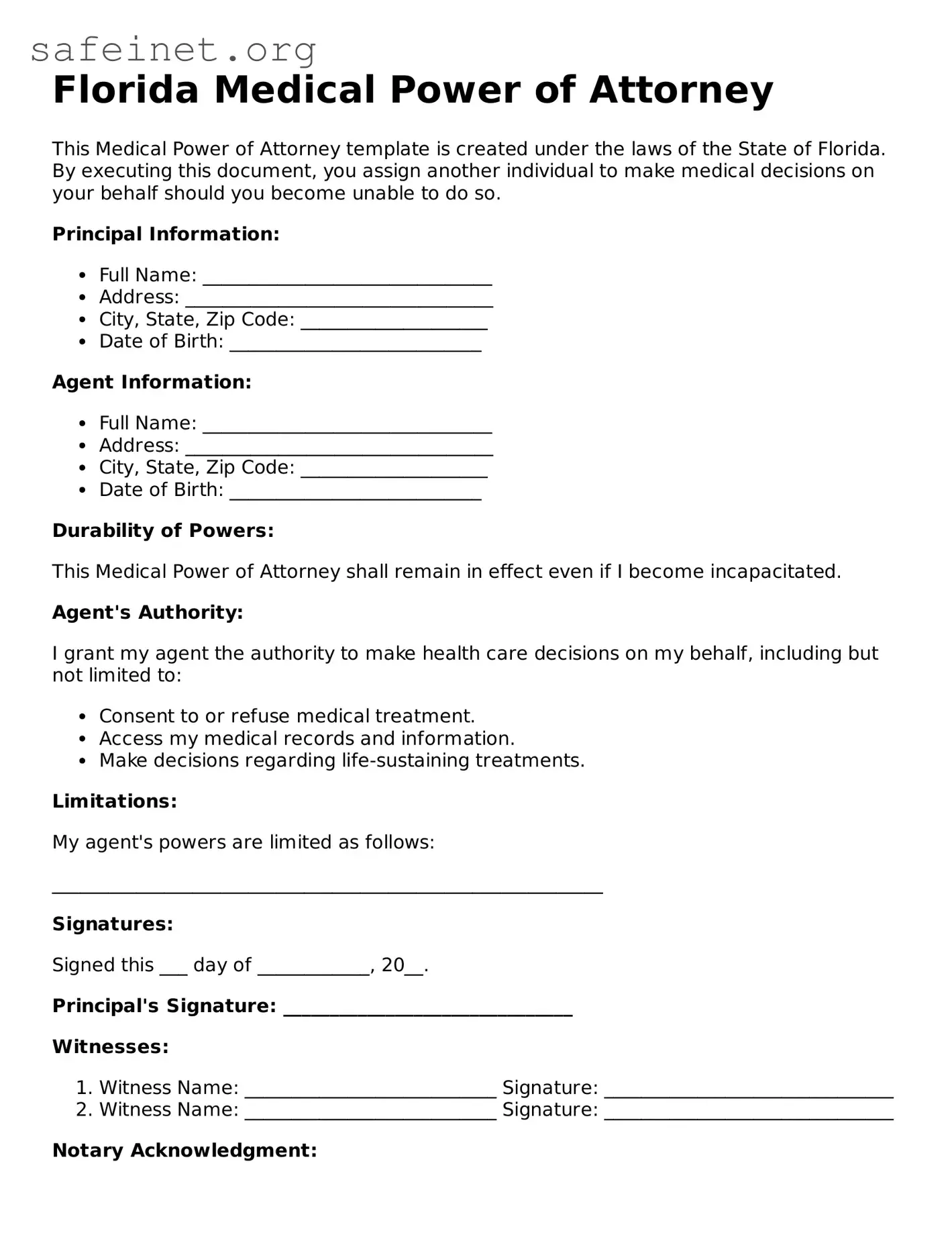What is a Florida Medical Power of Attorney?
A Florida Medical Power of Attorney is a legal document that allows you to appoint someone to make medical decisions on your behalf if you become unable to do so. This document ensures that your healthcare preferences are respected and that someone you trust advocates for your wishes.
Who can be appointed as an agent in a Florida Medical Power of Attorney?
You can appoint any adult person as your agent. This could be a family member, close friend, or even a trusted advisor. It is crucial to choose someone who understands your values and healthcare preferences.
What types of decisions can my agent make?
Your agent can make a variety of healthcare decisions, including decisions about medical treatment, surgery, and end-of-life care. They can also talk to healthcare providers and access your medical records as necessary to make informed decisions in your best interest.
Do I need to use a specific form for the Florida Medical Power of Attorney?
While Florida does not require a specific form, using a state-approved template can help ensure that your document meets all legal requirements. You can find these templates online or through legal resources.
Is a Medical Power of Attorney effective immediately?
This document can be either immediate or springing. An immediate power of attorney becomes effective as soon as you sign it, while a springing power of attorney only takes effect when you are determined to be incapacitated by a qualified professional.
How do I revoke a Florida Medical Power of Attorney?
You can revoke your Medical Power of Attorney at any time as long as you are competent. To do so, you should inform your agent and any healthcare providers in writing, and you may want to create a new power of attorney to replace the old one.
Do I need witnesses or notarization for the document to be valid?
Yes, you must sign your Medical Power of Attorney in the presence of two witnesses or have it notarized. Your witnesses cannot be related to you or entitled to any portion of your estate, ensuring that the document remains valid and represents your wishes.
Can I include specific medical wishes in my Medical Power of Attorney?
Yes, you can include specific instructions regarding your medical treatment preferences, which can guide your agent in making decisions. Including these wishes helps ensure that your medical care aligns with your personal values.
How does the Medical Power of Attorney differ from a living will?
A Medical Power of Attorney designates an agent to make decisions on your behalf, while a living will outlines your preferences regarding specific medical treatments if you become terminally ill or incapacitated. Both documents serve different but complementary purposes in healthcare planning.
Can I have both a Medical Power of Attorney and a living will?
Yes, having both documents is advisable. A Medical Power of Attorney gives someone the authority to make decisions, while a living will provides clear guidance about your wishes. Together, they help ensure that your healthcare preferences are honored.
